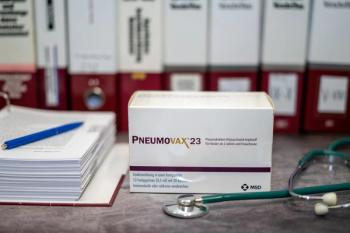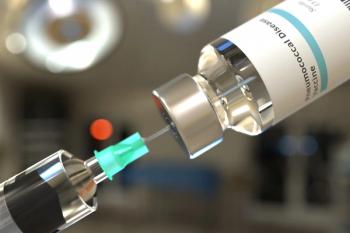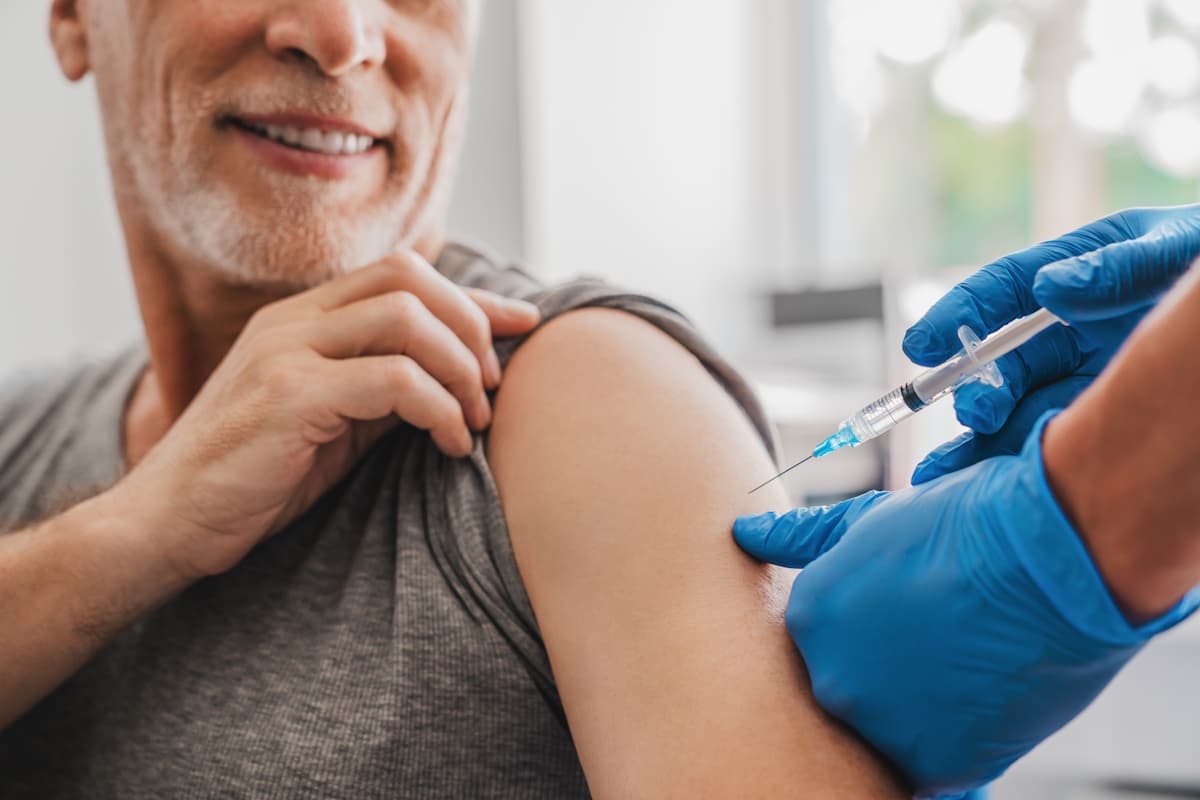
Pneumococcal
Latest News
Latest Videos

CME Content
More News

Conversely, Medicaid enrollees experienced widening gaps of pneumococcal vaccination uptake, likely driven by socioeconomic obstacles.

Education initiatives, facilitation, and immunization on the part of pharmacists were found to significantly increase uptake of pneumococcal vaccines among older adults.

An expert discusses how pharmacists can ensure completion of multidose pneumococcal vaccine series through electronic reminder systems, state immunization registries, scheduled follow-up appointments, and providing patients with printed vaccine cards for tracking purposes.

Since the most recent guidelines were published, more evidence has emerged regarding intravenous corticosteroids for severely ill patients.

Patients with inflammatory rheumatic diseases may have a protective effect against serious COVID-19 outcomes once they receive a pneumococcal vaccination.

An expert discusses how pharmacists can overcome common vaccination barriers by addressing misconceptions about vaccine necessity, making strong provider recommendations, and educating patients about mild adverse effects while building trust through consistent communication.

An expert discusses how pharmacists can evaluate patients with prior adverse vaccine reactions by distinguishing between mild local reactions and serious anaphylactic responses, then recommending supervised vaccination or medical center administration when appropriate.

In a community of older adults, initiating a pneumococcal vaccination support program reduced annual pneumonia-related mortality by 25%, demonstrating broad public and individual health benefits.

Six months following discharge from the hospital, adults who battled community-acquired pneumonia were at heightened risk of losing the ability to perform activities and experiencing poor quality of life.

An expert discusses how pharmacists should follow CDC immunization schedules for different age groups and use shared clinical decision-making for patients with prior vaccination history, while considering contraindications primarily related to severe allergic reactions to vaccine components.

An expert discusses how the 5 FDA-approved pneumococcal vaccines differ, with newer conjugate vaccines like PCV20 and PCV21 offering broader serotype coverage and better immune memory compared with the older polysaccharide vaccine, though geographic factors may influence vaccine selection.

Across 3 different manufacturing lots, V116 (21-valent pneumococcal conjugate vaccine) demonstrated consistent immunogenicity and efficacy against S pneumoniae, which causes pneumococcal diseases.

An expert discusses how pharmacists can identify high-risk patients for pneumococcal disease by reviewing medication profiles for immunosuppressants and using electronic medical record vaccine tracking tools, while emphasizing that vulnerable populations face higher morbidity, mortality, and hospitalization rates compared with healthy individuals.

An expert discusses how pneumococcal disease presents differently across age groups, with children primarily experiencing ear infections, whereas adults face more serious, invasive complications such as bacteremia and meningitis, though vaccination efforts have significantly reduced overall incidence rates.

Six years following vaccination with 23-valent pneumococcal polysaccharide vaccine in a Chinese population, antibody levels remained high, although not as high as 28 days following vaccination.

The expansion of pneumococcal vaccine recommendations would ultimately lead to economic and health benefits, especially for underserved populations.

Accurate utility estimates are critical to providing a comprehensive view of quality of life for children impacted by pneumococcal disease.

Low uptake of vaccination to protect against invasive pneumococcal disease (IPD) was observed both before and after a pneumococcal-related hospitalization, with countless missed vaccination opportunities documented.

Targeted Screening Tools Can Increase Pneumococcal Vaccine Uptake in Health System Retail Pharmacies
Implementation of the Plan-Do-Study-Act cycle in health system retail pharmacies significantly increased uptake of 20-valent pneumococcal conjugate vaccine among eligible adults.

V114, a 15-valent pneumococcal conjugate vaccine (PCV), provided better protection against serotypes 22F and 33F compared with 13-valent PCV (PCV13).

Interventions such as educational brochures, provider-delivered educational programs, and computerized reminders were found to help improve pneumococcal vaccine uptake in older adults.

Experts emphasize the importance of tailored vaccination strategies for pneumococcal based on individual risk factors.

A systematic review reveals declining pediatric pneumococcal complicated pneumonia rates following the introduction of pneumococcal conjugate vaccine 13.

A new study reveals that heart failure patients with implantable devices are more likely to receive the pneumococcal conjugate vaccine 13, impacting vaccination rates and mortality.

Like other high-risk groups, children with sickle cell disease have a heightened risk of invasive pneumococcal disease, even if they receive proper pneumococcal conjugate vaccine coverage.



























